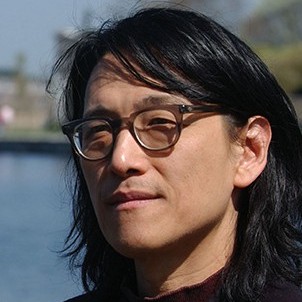She begins, and my grandmother joins her.
Mother and daughter sing like young girls.
If my father were alive, he would play
his accordion and sway like a boat.
I’ve never been in Peking, or the Summer Palace,
nor stood on the great Stone Boat to watch
the rain begin on Kuen Ming Lake, the picnickers
running away in the grass.
But I love to hear it sung;
how the waterlilies fill with rain until
they overturn, spilling water into water,
then rock back, and fill with more.
Both women have begun to cry.
But neither stops her song.
Published:
1986
Length:
Regular
Literary Movements:
Contemporary
Anthology Years:
2023
Themes:
Identity
Immigration
Intersectionality & Culture
Memory & The Past
Literary Devices:
Enjambment
a line break interrupting the middle of a phrase which continues on to the next line
Imagery
visually descriptive or figurative language, especially in a literary work
Simile
a comparison between two unlike things using the words “like” or “as”

